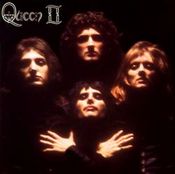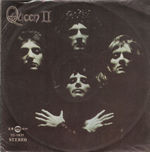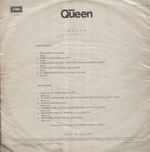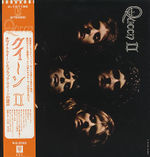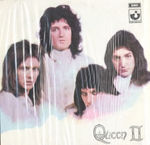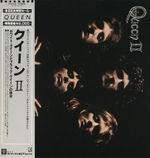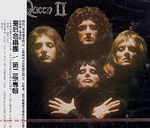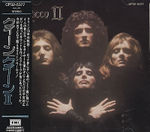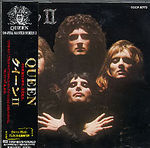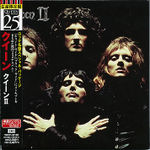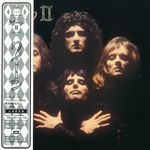From Queenpedia.com
History of this album.
Tracklists
|
Vinyl version
|
1991 Hollywood Records CD |
Credits
- Musicians:
- Freddie Mercury - vocals, piano, harpsichord on The Fairy Feller's Master-Stroke
- Brian May - guitars, vocals, piano on Father To Son, lead vocals on Some Day, One Day, bells on The March Of The Black Queen
- John Deacon - bass guitar, acoustic guitar on Father To Son and Funny How Love Is
- Roger Meddows-Taylor - drums, percussion, vocals, marimba and lead vocals on The Loser In The End
- Roy Thomas Baker - virtuoso castanets on The March Of The Black Queen
- Produced by: Queen and Roy Thomas Baker. Nevermore and Funny How Love Is produced by Queen and Robin Geoffrey Cable. The March Of The Black Queen produced by Queen, Roy Thomas Baker, and Robin Geoffrey Cable.
- Recorded: August 1973 at Trident Studios, London.
Charts
| Country | Release date | First appearance in charts | Peak position | Chart run | Weeks in chart | Additional comments |
| UK | - | 23 March 1974 | 5 | 35-7-5-10-8-11-13-13-36-28-26 | 11 weeks, 4 in Top Ten | First run in UK charts |
| UK | - | 9 November 1974 | 30 | 45-0-30-48 | 3 weeks, 14 so far | Second run in UK charts |
| UK | - | 22 February 1975 | 40 | 40-0-0-46 | 2 weeks, 16 weeks so far | Third run in UK charts |
| UK | - | 17 January 1976 | 23 | 50-48-58-34-25-23-36-37-30-26-44-51-59 | 13 weeks, 29 weeks total. | Fourth and final run in UK charts. In Top 10 for 4 total weeks. |
| USA | - | 11 May 1974 | 49 | 134-90-67-52-50-49-62-85-88-105-113-135-175 | 13 weeks total. | - |
Information supplied by Fedepeti, 24 August 2004
- Japan: unknown.
- Holland: did not chart.
- Italy: did not chart.
Liner notes
- Notes
Singles
Notes: In Japan, the B-side was The Loser In The End. See What A Fool I've Been was recorded during the album sessions but was not released on Queen II.
Reviews
Rolling Stone, 1974
Queen is a reasonably talented band who have chosen their models unwisely. On "Side Black," they venture into a lyrically muddled fairy-tale world with none of Genesis's wit or sophistication. They've also appropriated the most irritating elements of Yes's style — histrionic vocals, abrupt and pointless compositional complexity, and a dearth of melody. "Side White" is quite an improvement, containing many of the same muddled tendencies, but with the saving grace of timely and well-chosen power chords and some rather pretty tunes. But the album remains a floundering and sadly unoriginal affair.
Additional Reviews
